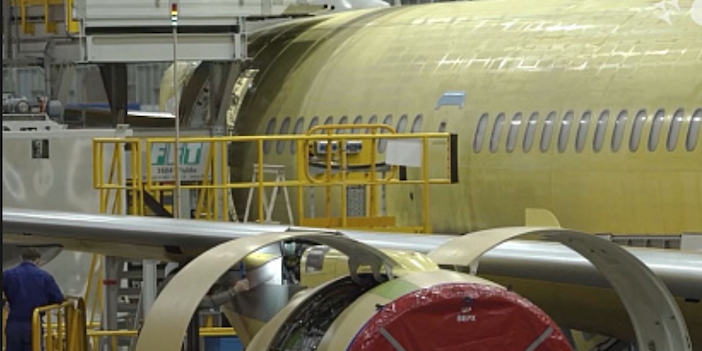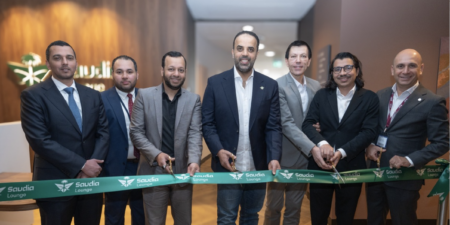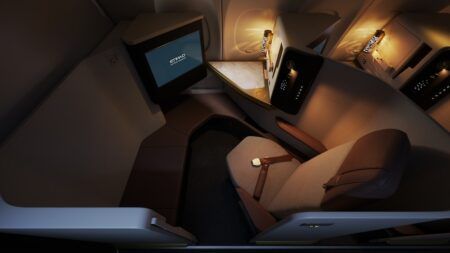The sanctions imposed upon Russia in response to its invasion of Ukraine have impacted the country’s aviation sector, with access to aircraft and spares for Airbus and Boeing severed. With uncertainty of when the conflict might be resolved or ended, and indeed how long the sanctions would remain in place afterwards, Russian flag carrier, Aeroflot, has had to look inward for its future aircraft needs. Sergey Aleksandrovsky, general director of PJSC Aeroflot has signed an agreement of intent with Yury Slyusar, general director of United Aircraft Corporation (UAC) of Rostec State Corporation, to purchase 339 Russian-built aircraft that will serve as its future fleet.
The agreement is for 210 MC-21 aircraft (medium-haul narrowbody, 163-211 PAX), 89 SSJ-NEW aircraft (regional jet), and 40 Tu-214 aircraft (medium-range narrowbody), to be delivered to Aeroflot Group under leasing terms from 2023 to 2030. The contract document states that the Group will receive first two Superjet-NEW aircraft in 2023, and starting from 2024, deliveries are planned for the first six MC-21 aircraft and the first seven Tu-214 aircraft.
“Historical changes are coming to civil aviation. Boeing and Airbus aircraft, which are unlikely to ever be delivered to Russia again, will be replaced by Russian-made passenger aircraft. Out of the 339 aircraft, almost 300 are new-generation MC-21 and Superjet aircraft. Tu-214 will become a reliable support – this aircraft was previously manufactured for special customers and has proven itself well. MC-21 will be the flagship of the Aeroflot fleet,” commented Sergey Chemezov, director general of Rostec State Corporation. “I would like to note that all aircraft will be delivered with Russian-made on-board systems and components.”
“Through Aeroflot Group, we are getting a reliable partner for entry into service of new generation Russian-made airliners. Given the unprecedented volume of the contract, its execution becomes one of UAC’s top priorities for the coming years, as the transport accessibility of the Russian regions and the mobility of the population of our country largely depend on it,” added Rostec’s Yury Slyusar. “Given the importance of the tasks entrusted to us, we plan to sign first firm contacts for the delivery of aircraft in 2023-2025 before the end of this year.”
The contract will be part-funded by the National Wealth Fund, with the Russian state subsidising the purchase of Russian-made aircraft by national airlines.
“Due to the fact that first serial aircraft are always more expensive, at the initial stage, the difference between the delivery price and the actual cost will be compensated from the budget,” said Denis Manturov, deputy prime minister of the Russian Federation and minister of industry and trade of the Russian Federation. “With an increase in production, we will move away from this extra measure. Together with the Ministry of Finance and the Ministry of Economic Development of Russia, we work to optimise the procedures of providing funds from the National Wealth Fund for the fleet renewal programme. It is very important for us to quickly launch serial production under the contract in the current situation.”





